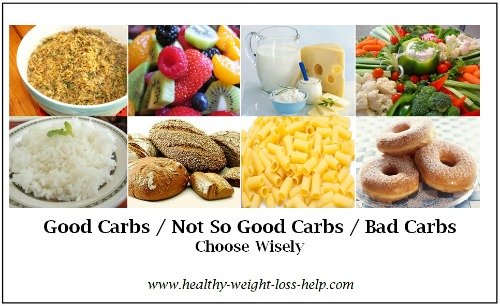| Back to Back Issues Page |
 |
|
HWLH News Letter for April 2022- Issue #0101 - Bad Carbohydrates April 01, 2022 |
Welcome to HWLH News LetterApril 2022 - #101 - Avoiding Bad CarbohydratesHappy Spring All and I Hope Everyone is Doing Well Carbohydrates have sure gotten a lot of bad publicity when it comes to gaining weight, but without sounding too scientific we simply need carbohydrates to supply our bodies and brain with fuel, giving us the daily energy we need to function, so choosing the right carbohydrates to eat is key.

Carbs turn into glucose (sugar) which is what gives us energy, though any energy (calories) not used is stored in the liver for future use. If we consume more calories than we need, it will be stored in the body as fat. Carbohydrates are almost exclusively found in plant foods, such as vegetables, fruits and beans. They are also found in milk products which are the only foods derived from an animal source that has carbohydrates in them. Carbohydrates are divided into two groups which are simple and complex. What Are Simple Carbohydrates? Simple forms of carbs consist of simple sugars such as fructose (derived from fruit), sucrose (table sugar) and lactose (derived from milk sugar) (along with a few other sugar sources), such as honey and fruit juice. Not all simple carbs are bad for you. Fresh fruit for instance is a wonderful, healthy source of simple carbohydrates that not only offers energy, but also offers a plethora of vitamins, nutrients and antioxidants. What Are Complex Carbohydrates? Yes, complex carbs contain sugar too, but the sugar molecules are longer and more complex, hence the name. Complex carbs include starches and fiber, foods such as vegetables, beans and whole grains. Complex carbohydrates that are found in whole grains, legumes, vegetables are a healthy choice of carbs to eat. They provide a steady source of energy (not a spiked sugary energy that drops quickly which can make your glucose levels fluctuate). Though we must be careful as some complex carbs are often refined depleting them of nutritional value.
What are refined carbohydrates? This is when certain foods are processed, removing much of their nutritional value and fiber content. Consider these foods that offer us little or no nutrition, but they do offer many empty calories. Candy, cakes, pastries, sugary cereals, white bread, white flour, white rice, pasta (anything made with white flour) are all considered refined carbohydrates. Avoiding refined carbs, (along with sugar) always helps with weight loss and disease prevention. List of some Bad Carbs: White pasta Mac and cheese White rice White breads (sorry) Sugary cereals Pizza made with white flour Sugary drinks Refined sweets such as pastries, donuts, cookies, Twinkies, cake, ice cream and candy Chips/ pretzels, crackers Highly processed fruit juices
Good Carbs versus Bad Carbs - How to Choose Carbs Wisely: An easy way to judge if a food is healthy is by how much that food has been processed or altered from its natural state. I feel it’s safe to say the less processed a food is, the healthier it is. So this means that refined carbs are considered to be unhealthy and should be eaten only in moderation. On that note: • Choose unrefined foods such as fresh fruits, vegetables, beans (legumes) and whole grain items • Avoid refined processed foods such as desserts, candy, sugary drinks, donuts, pastries etc. • High fiber carbohydrates (beans and legumes) are wonderful as they add roughage to your diet, which aids in digestion, prevents constipation and hemorrhoids and may help reduce the risk of colon cancer. • High fiber foods also help lower blood cholesterol levels, which help reduce the risk of heart disease. • Eating large amounts of sugary refined carbs can lead to health problems such as diabetes, obesity and hypoglycemia (low blood sugar). • Foods high in refined simple sugars are often high in fats such as cakes, cookies and donuts.
How many carbohydrates should we be eating daily? Most government sites state that the dietary guidelines for daily carbohydrate intake should be between 45 - 65% of your calorie intake derived from healthy carbohydrate sources.
Tips:
• Fruits and vegetables contain only natural sugars and are plentiful in fiber. They provide lots of vitamins, minerals and antioxidants. They have little to no fat and are usually cholesterol free. Now if you purchase canned or frozen fruits and vegetables and also fruit juices, they offer less nutrition due to the high heat needed to process them. They also usually contain added sugars and/or salt and preservatives. • When selecting grains and cereals, choose whole grains because they are high in fiber and offer nutrients. • When it comes to dairy products, select low fat products and try to avoid dairy products that have added sugar. • Good carbs versus bad carbs can be pretty simple. Avoid foods that are refined, made with white flower and have added sugar. Instead, choose healthy carbohydrates by enjoying unrefined plant foods. Conclusion: Just as always – MODERATION IS KEY….. So try to eat good carbs most of the time and eat bad carbs in moderation.
Wishing you all health and happiness Until next time Catherine :)
Your Opinion Counts:
|
| Back to Back Issues Page |